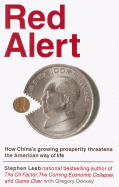 By Morley Winograd
By Morley Winograd"In this timely analysis of demographic data, Winograd and Hais (Millennial Makeover) examine the habits, values, and desires of the generation born between 1982 and 2003. Turning away from the apathetic and introverted attitudes of Generation X, the disillusioned idealism of the boomer generation, and the pragmatism of the silent generation, Millennials most resemble the G.I. generation, which supported the New Deal and oversaw a radical reshaping of government's role in improving quality of life in America. Like the G.I.s, Millennials are a "civic generation," one that responds to fear, uncertainty, and doubt by attempting to better the world through public service, personal engagement, and demand for a transparent and responsive government. The most racially diverse and ideologically tolerant population the U.S. has ever known, Millennials are also the best networked group of humans in history. Believing that every consumer choice, every vote, every blog post and tweet matters, young people come of age expecting to be heard and to make change. Although still gaining momentum, Millennial thinking has already proved itself powerfulthe networked grassroots organization that elected Barack Obama is the book's most persuasive example. Though general readers might be put off by the academic quality of Winograd and Hais's prose, the book offers important insights into the dynamic, interdependent forces that will shape America's future." (Publishers Weekly) Check Our Catalog









